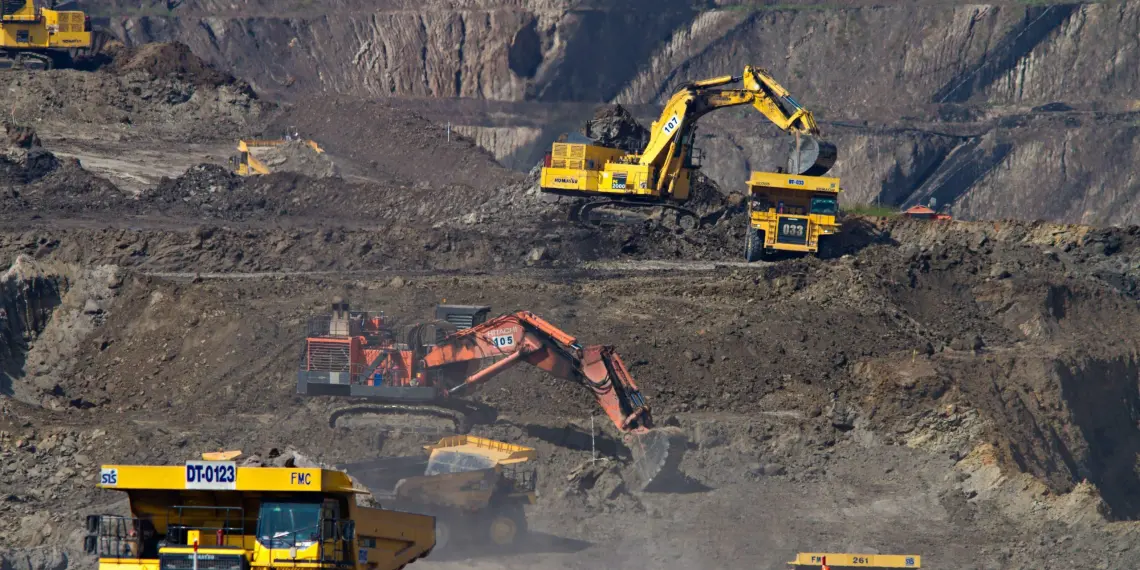Nigeria recorded a 17.95% increase in mineral production in 2020 over 2019 despite the many challenges, both internal like insecurity and global like the coronavirus outbreak, faced by the country.
Overall output in mineral production in 2020 increased from 54.51 million tons to 64.29 million tons although 18 states produced fewer mineral products in 2020 than in 2019.
Out of the 36 states and capital, 17 states increased output in 2020 over 2019. Eighteen had a fall in production in 2020. Rivers State which had no output in 2019 produced 8.92 million tons in 2020 while Cross River had zero output reported in 2020 although it produced 4.03 million tons in 2019.
Data on mineral production from the National Bureau of Statistics (NBS) shows that Bayelsa topped other states as it recorded the highest increase in mineral production in 2020 over 2019. The state’s mineral output increased from 0.26 million tons in 2019 to 4.41 million tons in 2020. This signifies a 16616.1% increase in production.
Lagos state followed with an increase in production from 0.21 million tons in 2019 to 6.74 million tons in 2020. This represented a 3189.02% increase. Adamawa, Ekiti, and Ebonyi state complete the top five states. The states had an 808.2%, 240.14%, and 136.03% increase respectively.
Of the 19 states that recorded decreases, FCT had the highest. The capital city’s output fell from 10.82 million tons in 2019 to 1.42 million tons in 2020. This represents an 86.85% fall in mineral production.
Borno followed with an 83.66% fall in production as its output dropped from 0.03 million tons in 2019 to 0.005 million tons in 2020. Yobe and Zamfara were in third and fourth place with 82.76% and 74.13% decreases.
The five states with the least fall in mineral production are Ogun, Kwara, Enugu, Anambra, and Gombe. These states recorded a 3.52%, 4.41%, 13.34%, 14.93% and 18.88% decrease in output respectively.
![]()
Top minerals produced in 2020 include limestone, sand, granite, laterite, and clay. Although the total number of minerals produced in 2019 was higher. In 2019, 51 minerals were reported produced, while only 39 were produced in 2020.
Data analysis shows that three minerals made the top five in both years – limestone, granite, and laterite. Limestone, however, topped in both years with increased production in 2020 from 22.22 million tons in 2019 to 29.37 million tons in 2020. Of the three top-five minerals produced in both years, granite recorded a drop in output in 2020 compared to 2019. Total production dropped from 9.23 million tons in 2019 to 9.08 million tons in 2020, even though it maintained the third position in both years.
![]()
Four of the nine minerals in the top ten in both years had an increase in production, while five had a drop in output. Limestone, laterite, sand, and coal increased in output in 2019 compared to 2020. Granite dust, granite, granite aggregate, shale, and clay were the minerals that were reported to have a drop in output in 2020.
Mining and quarrying sector contributed 7% to Nigeria’s GDP in 2021 but over 99% of that contribution is from crude petroleum and natural gas. Solid minerals’ contribution is very negligible and several factors have been blamed for the non-performance of the sector. These issues include illegal mining, lack of adequate regulatory measures, lack of concrete investment in the sector among others.
The Federal Government is targeting a 5% contribution from the sector by 2025, setting out an agenda that includes special focus on solid minerals that can bring big returns as well as reforms within the sector.
With Nigeria facing dire revenue challenges, every sector’s contribution counts, especially a sector like mining with its history of success, huge potentials for surpassing crude revenues and headlining Nigeria’s economic diversification efforts alongside other sectors like agriculture.


